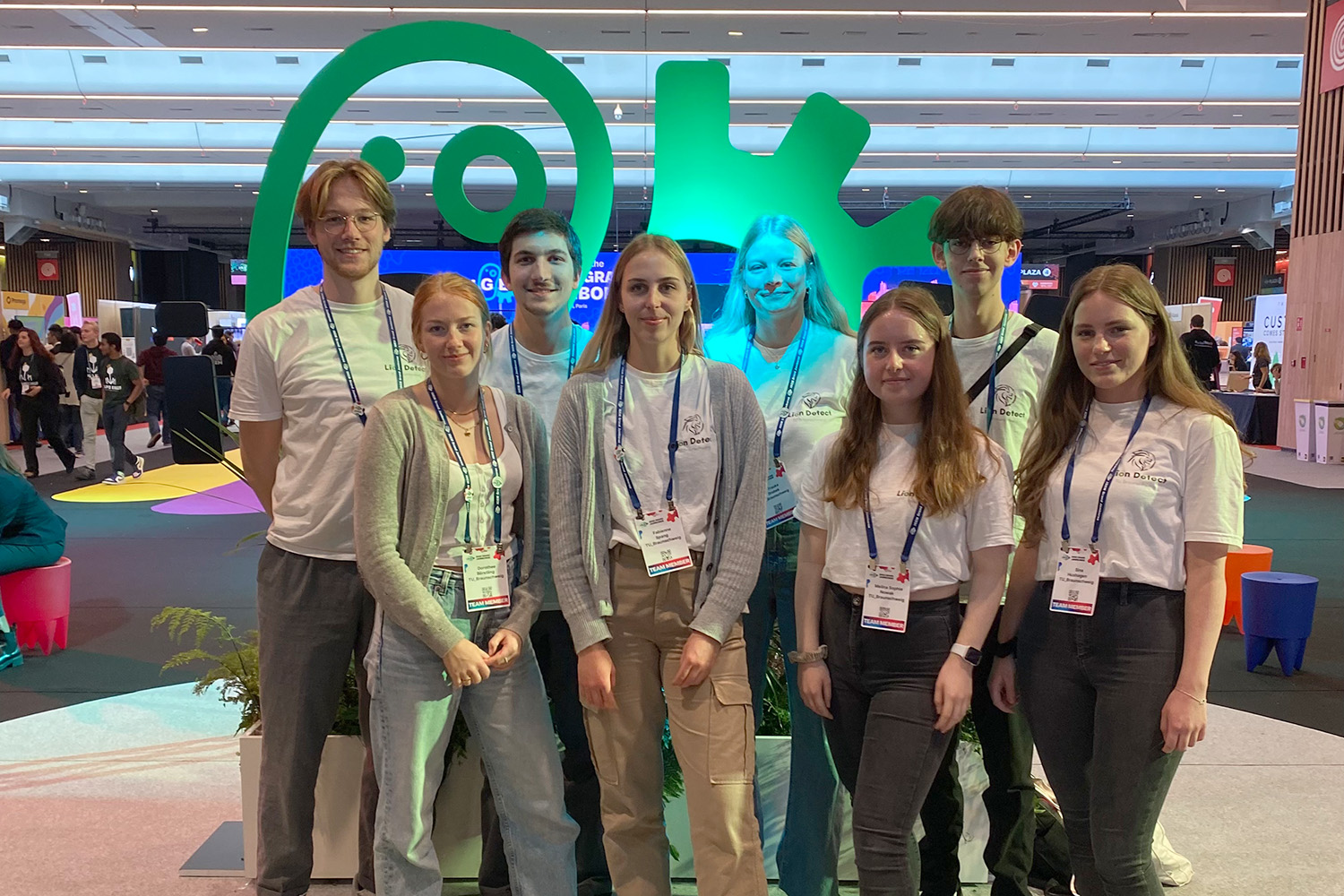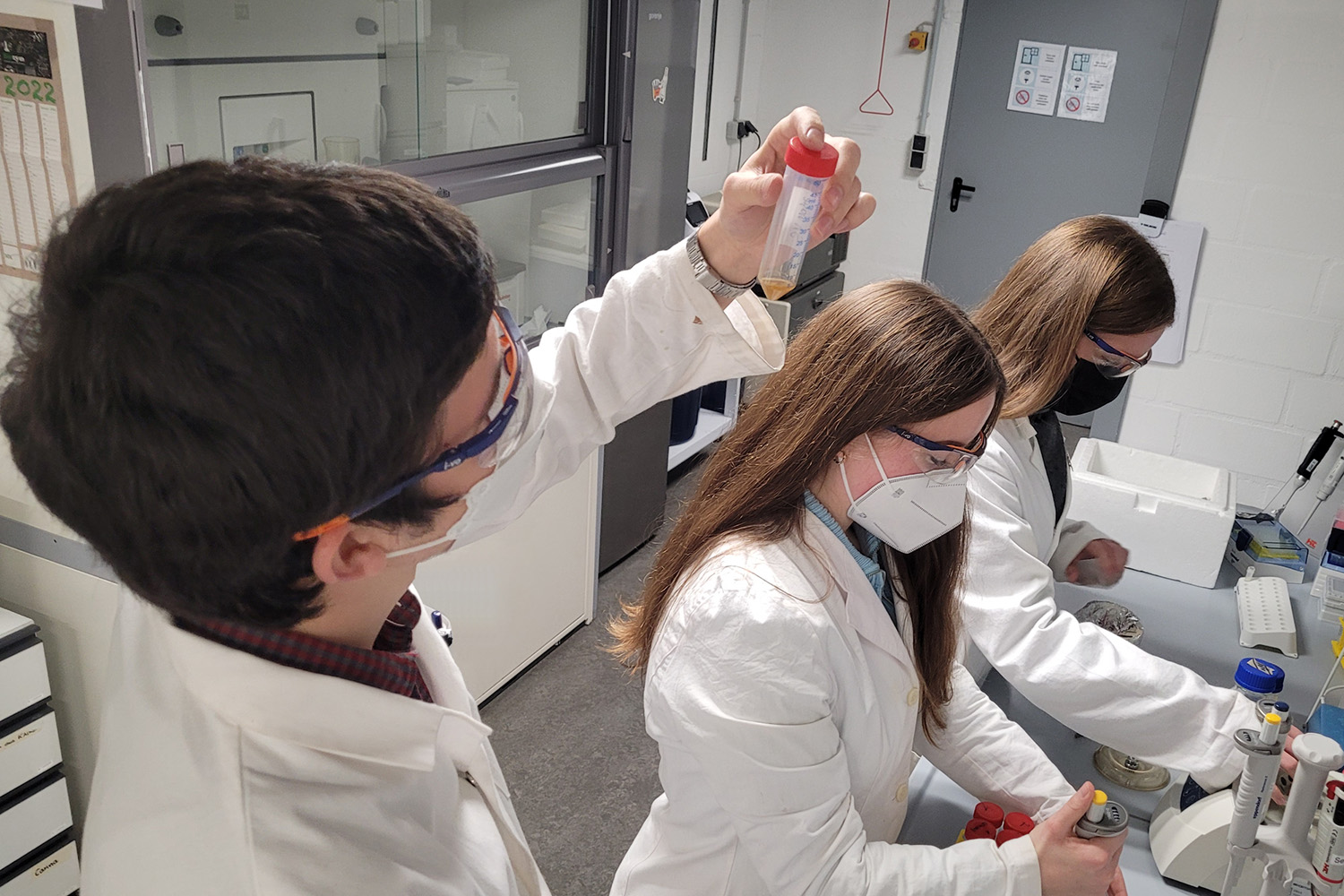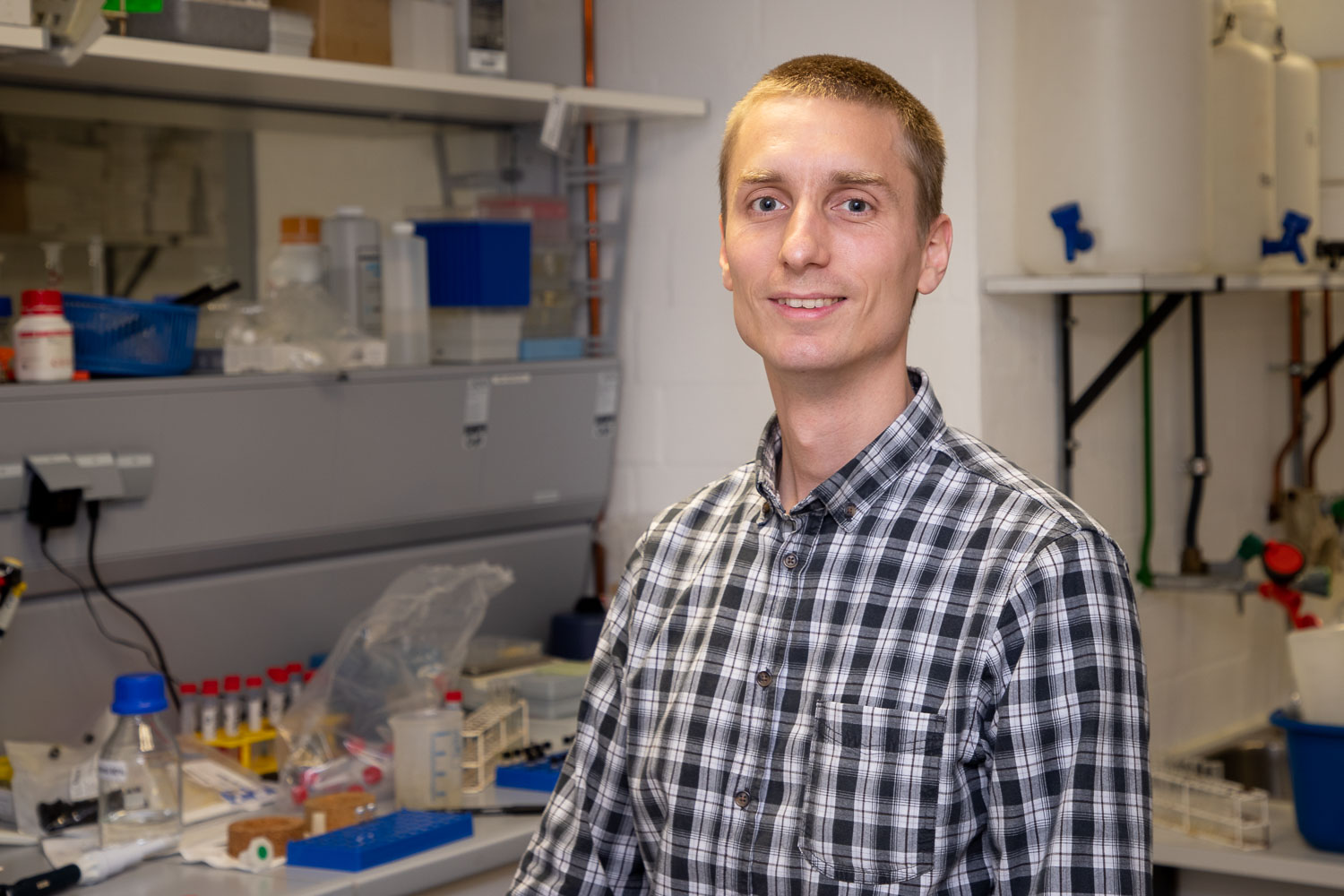“We wanted a system that would allow a general practitioner to test quickly” Biology students: Silver medal for Braunschweig iGEM team
“Students are lazy and only hang out at parties” is the cliché. And this is despite the fact that the German Student Services regularly show in their studies that full-time students spend an average of around 35 hours a week on their studies. Added to this is their work in university projects – as with the students who formed the iGEM team at TU Braunschweig in 2022 and won a prize in Paris. A report by Christian Köcher.

The whole team at the presentation in Paris. Photo credit: iGEM team TU Braunschweig
The “International Genetically Engineered Machine (iGEM) competition” is one of the largest international competitions for young scientists in the field of synthetic biology: in 2022, more than 350 teams from 41 countries competed against each other. The TU Braunschweig team achieved a great silver medal.
The fact that there was an iGEM team from TU Braunschweig at all is thanks to Professor Boas Pucker from the Institute of Plant Biology: “I’ve known the competition well since 2016 and have already supported several teams in taking part.” Professor Pucker introduced the competition to students from his and other departments. And although he pointed out that participation would mean a lot of work alongside studies for a year – without receiving study points for it – a team of biology students quickly formed: “I wanted to do something alongside my studies. And you can really learn a lot there – not only lab work, but also all around,” says Sina Huxhagen. And Samuel Meckoni adds: “I particularly liked the fact that you could develop your own ideas in the project and then implement them yourself. In my studies, everything is usually predefined.
Topic: Early detection of oesophageal cancer
After intensive research, the team decided on the topic of “early detection of oesophageal cancer”. Sina Huxhagen explains: “It was relatively new that researchers had found markers in the blood that could detect oesophageal cancer. And everything seemed so needy: because the ambiguous symptoms appear late, the cancer is not detected for a long time. We wanted to develop a system that a general practitioner could use to test quickly in his or her practice. At the moment, GPs have to send most blood samples to a lab first for detection.”
Prototype for marker detection at the general practitioner’s practice
In consultation with experts and a doctor, the team developed an initial prototype for a device that can be placed in the GP’s practice and is easy to operate: The doctor mixes a blood sample with a chemical and slides it into the device. The chemical causes the markers to emit light signals. “The trick is that you can detect small amounts with our system: Each signal is amplified again,” says Sina Huxhagen. With the help of an ordinary mobile phone, the light signals are detected and converted into a test result. The system, called “LionDetect”, can also be used to detect other substances in the blood – to do this, the chemical only has to be aligned with the markers in question.

Samuel Meckoni, Melina Nowak and Sina Huxhagen in the iGEM lab. Photo credit: Christian Köcher/BHB
Additional laboratory equipment acquired
However, research and development work alone was not enough for the project: the team had to acquire additional laboratory equipment and materials for their project. Among the supporters were the Ecki Wohlgehagen Foundation, the Bürgerstiftung (Community Foundation) and the Braunschweigischer Hochschulbund. The most extensive task, however, was the creation of documentation as an online wiki: “Actually, everything is in there – from front to back: a short description of what we did, but also the biological background of the topic, how we sold ourselves to the outside world – simply everything we did in the iGEM year,” says Huxhagen. And Benjamin Harder adds: “The wiki is the most important evaluation basis for the judges.“
Final in Paris
The final of the competition was the project presentation at a major event in Paris. Sina Huxhagen: “Paris was the coolest – there you saw all the other projects and felt connected to all the other teams. Here in Braunschweig you always worked for yourself and there you first noticed where you were participating at all.” But the students were also satisfied in other respects, as Melina Nowak sums up: “It was stressful. There were many positive, but also negative aspects during the year – but in the end, everything was positive for the personal development.
Some students have already expressed their interest in taking part in next year’s competition. So there really is something wrong with the cliché of lazy students.
Author: Christian Köcher

